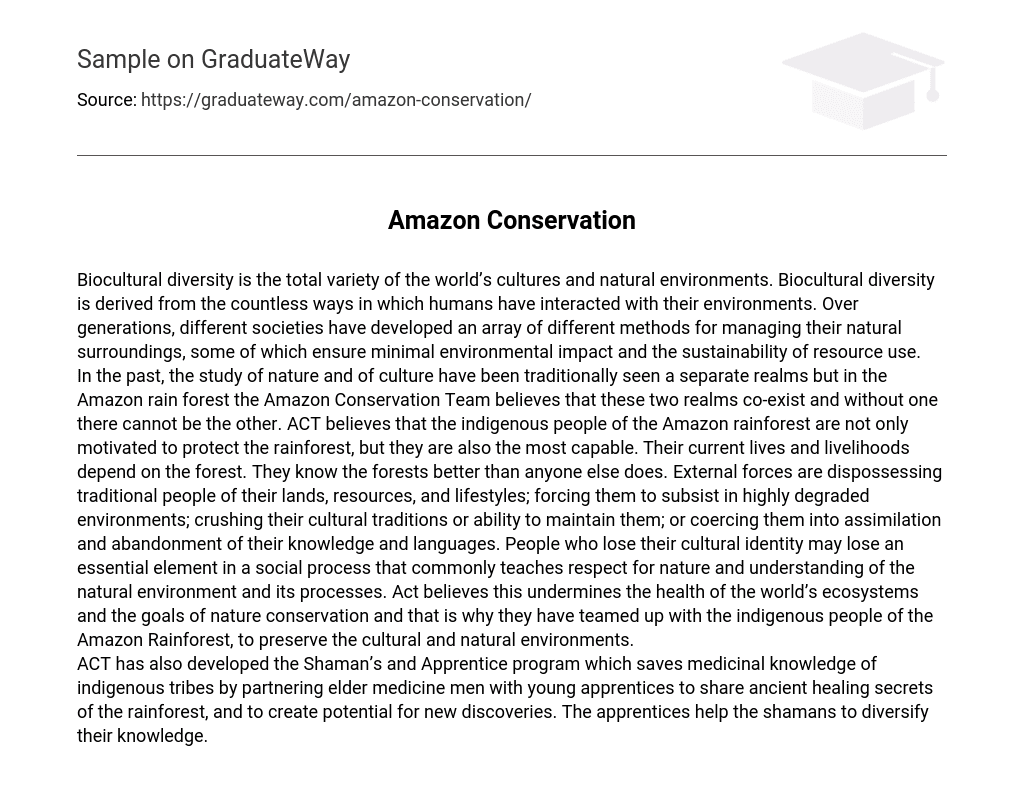Biocultural diversity is the total variety of the world’s cultures and natural environments. Biocultural diversity is derived from the countless ways in which humans have interacted with their environments.
Over generations, different societies have developed an array of different methods for managing their natural surroundings, some of which ensure minimal environmental impact and the sustainability of resource use.
In the past, the study of nature and of culture have been traditionally seen a separate realms but in the Amazon rain forest the Amazon Conservation Team believes that these two realms co-exist and without one there cannot be the other. ACT believes that the indigenous people of the Amazon rainforest are not only motivated to protect the rainforest, but they are also the most capable. Their current lives and livelihoods depend on the forest.
They know the forests better than anyone else does. External forces are dispossessing traditional people of their lands, resources, and lifestyles; forcing them to subsist in highly degraded environments; crushing their cultural traditions or ability to maintain them; or coercing them into assimilation and abandonment of their knowledge and languages. People who lose their cultural identity may lose an essential element in a social process that commonly teaches respect for nature and understanding of the natural environment and its processes. Act believes this undermines the health of the world’s ecosystems and the goals of nature conservation and that is why they have teamed up with the indigenous people of the Amazon Rainforest, to preserve the cultural and natural environments.
ACT has also developed the Shaman’s and Apprentice program which saves medicinal knowledge of indigenous tribes by partnering elder medicine men with young apprentices to share ancient healing secrets of the rainforest, and to create potential for new discoveries. The apprentices help the shamans to diversify their knowledge.





